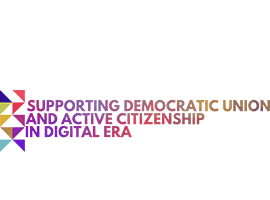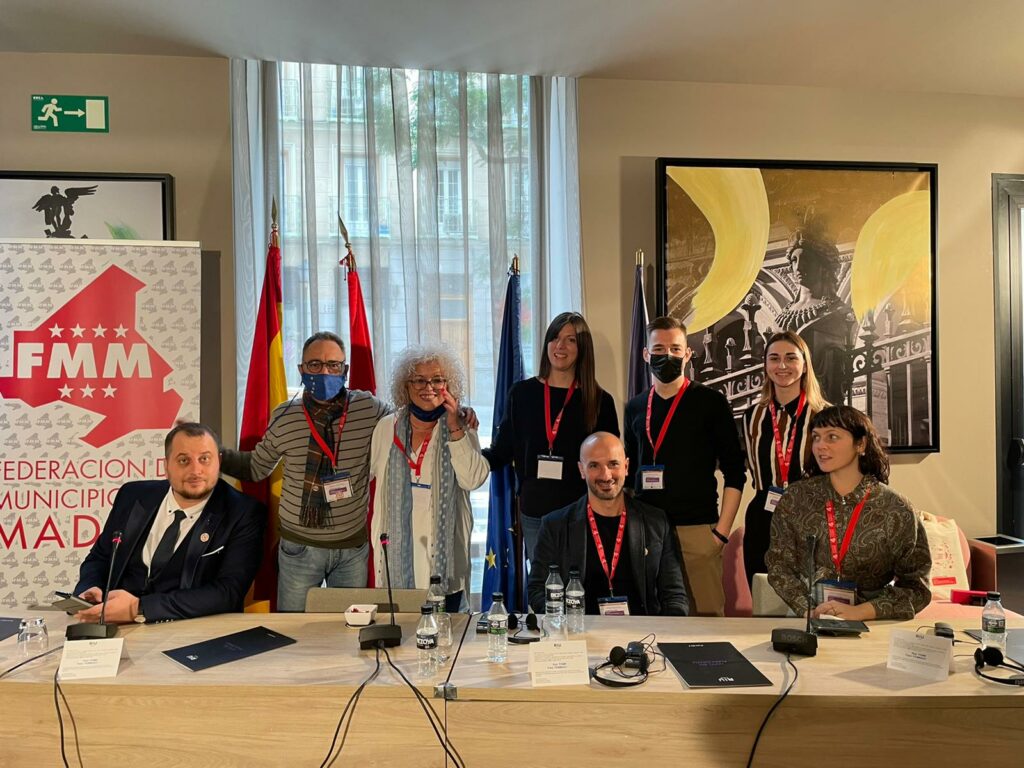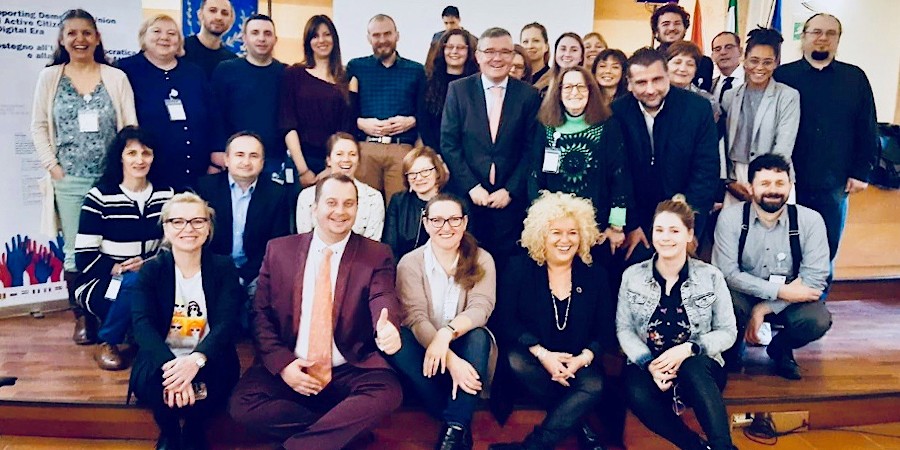
AT A GLANCE
New technologies, and especially social media, facilitate democratisation by empowering citizens to express themselves directly towards policymakers, and by giving room to new forms and means of expression. All this makes democracy more representative and participatory. However, it also has more negative aspects, as demonstrated by the rise of fake news and disinformation. Antidemocratic forces can easier than ever distort information flows, and tech giants can benefit from users’ data mining. All these phenomena will considerably shake democracy rules, and have a negative impact on the future of Europe.
The project offers a collective space for policy makers and citizens from 15 countries to organise international events and other activities to stimulate democratic and civic participation across Europe, and to support democratic Union in digital era.
The project is going to answer these three main challenges:
Impact of digital culture on democracy
- Helping policymakers and citizens navigate the digital media environment
- Media and information literacy as critical elements in good governance
European and local elections in a digital age
- Increasing societal resilience to disinformation and propaganda, and mobilising counter-forces.
- Countering fake news and disinformation spread online in local and European elections.
Digital participation
- Stimulating civic engagement through media and information.
- Bridging digital divide and political participation.
- Finding innovative ways to participate in political decision-making (e-consultation, e-decision-making, e-information sharing).

OBJECTIVES
The project priority is to debate the future of Europe and challenging Euroscepticism. That is why, the main objective of this project is to provide European local and regional policymakers and citizens with tools to support civic participation in a digital culture era.
ACTIVITIES
Within the project, a diverse group of 1400 citizens will contribute to design and implementation of five international events filled up with trainings, collaborative spaces, community workshops, and public debates.
The events will result in publishing policy highlights and collectively created Policy papers on how public institutions in Europe (including the Union’s institutions) can operate in face of digital transformation, and how to support democratic forms of bottom-up civic mobilization in digital era.
By facilitating exchange and policy learning among participants, the project will contribute to increase their resilience to disinformation and propaganda, and foster counter-actions, which is a fundamental value for the future of European democracy.
Check the project’s website: www.digitaldemocracy-network.com
